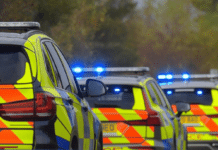Modern slavery is an appalling stain on our society. It’s a brutal form of organised crime, in which people are treated as commodities and exploited.
The Modern Slavery Act, enacted in March 2015, sent a strong signal to criminals that involvement in this vile trade will not be tolerated. It unified and simplified previous legislation. It gave law enforcement new powers. It increased sentencing powers and strengthened protections for survivors. It established the first Independent Anti-Slavery Commissioner and most important of all, it underlined the UK’s commitment to eradicating modern slavery.
Another important milestone in the fight against slavery came with the Immigration Act 2016. Under the legislation, the Gangmasters Licensing Authority became the Gangmasters and Labour Abuse Authority (GLAA) with stronger powers to investigate labour exploitation across all aspects of the UK labour market. An exciting part of the legislation was the creation of an information hub to facilitate effective data sharing between the GLAA and other partners including the police.
But modern slavery continues to plague us nationally. It’s taking place close to home and Dorset isn’t exempt. Great strides have been made in our approach to dealing with this crime, but there is still a long way to go.
At present, if a suspected victim is identified by police, they must be confirmed as a genuine victim by the National Referral Mechanism. Unlike in Scotland and Northern Ireland, while this process is ongoing, the individual is not entitled to any support.
The legislation established new protections for recognised victims but what it did not do was establish a pathway for their recovery. What is provided ceases as a matter of course after just 14 days. And after that, victims are left to fend for themselves, often with very little to fall back on.
The current options for housing and support must improve to prevent re-victimisation and break cycles of abuse. So long as these safeguards remain absent, we are perpetuating an unfortunate situation in which survivors of modern slavery and trafficking in England and Wales are afforded fewer legal rights than victims elsewhere in the UK.
I warmly welcome the amendments in the Modern Slavery (Victim Support) Bill that are making their way through parliament. These proposals would create a statutory duty to provide confirmed victims with ongoing support and automatic rights to remain in the UK for a period of 12 months.
As Police & Crime Commissioner for Dorset, I have made a number of specific commitments in relation to this inhumane crime.
Firstly, we must endeavour to increase crime reporting. Modern slavery is often referred to as a “hidden” crime and yet it happens in plain sight. As a society, if we’re to effectively safeguard people at risk we must get better at spotting the signs. I recently supported the launch of Hotel Watch – a brand new scheme between Dorset Police and the hotel community in Bournemouth and the surrounding areas. Under the initiative, police officers provide hotel staff with training to help them to identify human trafficking and other types of exploitation. Hoteliers also have access to a dedicated email network where they can submit intelligence and view appeals distributed by police officers. This has already assisted with a number of investigations and we hope to roll it out more widely across the county soon.
Secondly, I have pledged to provide resources to Dorset Police to tackle emerging crime areas and that includes adapting our response as our understanding of this issue develops. The Home Office predicts that there may be in excess of 13,000 victims of trafficking and modern slavery in the UK.
We know that pop-up brothels linked to trafficked women have been in operation. With regards to sexual exploitation, perpetrators tend to use short-term holiday lets, hotels and bed and breakfasts, moving swiftly from location to location before issues are identified. This adds a layer of complexity when it comes to intelligence gathering and this is precisely why we need the help of partners, local businesses and the wider public in order to act quickly.
Finally, we must get better at prevention. This is possibly the greatest challenge facing policing and partners across the public, private and third sectors. We need to look again at the legislation. Since the enactment of the Modern Slavery Act, large UK businesses have been obligated to produce a yearly transparency statement outlining the actions they have taken to eradicate slavery in their supply chains. This marks progress but it absolves smaller companies, the very businesses where we know modern slavery to be most prevalent, of comparable responsibility.
To properly advance the prevention agenda, we also need to address the root causes. In September 2017, 9 members of the Rooney family in Lincolnshire were prosecuted for modern slavery offences spanning more than 25 years. The reason such offenders are so prolific is because they target those who are already vulnerable – those fleeing other dangerous or exploitative situations, the homeless, those suffering with mental health problems. In essence, perpetrators deliberately prey upon those who are likely to buy into false promises through sheer desperation.
Establishing formal multi-agency working to address vulnerability is a long-term aspiration of mine. Upon re-election, I pledged to host Problem Solving Forums. This commitment is about innovation. Working together, we must scope out new ideas, assess problems from every angle and identify sustainable solutions. The first will consider what can be done to address homelessness, a condition that too often feeds exploitative practices like modern slavery and human trafficking.
In order to bring perpetrators to justice, we must all be vigilant. But in order to increase reporting, we need to know what to look out for. That is why events like these are so crucial and I’m grateful to our partners at Safer Poole for organising today’s conference.
Martyn Underhill
Dorset Police & Crime Commissioner











